· Odds probability By Isaiah Founder & Editor of Betshootcom Last updated on 23 April at 2148 When we calculate all the possible outcomes of a match, it equals to 100% It isn't more or less than 100% However, when we calculate the odds of any bookmaker, we can see that the odds offer is more than 100%The majority of scientists generally refer to probabilities, not odds, but that is more a matter of tradition, there is no logical basis for it There's a simple difference between probabilities and odds the probability of an event occurring is a fraction of how many times you would expect to see that event occurring on a set number of occasions A probability is always expressed as a numberDetailed 21 NBA lottery odds View the current odds for each lottery spot to get specific picks See the chances that a pick is traded based on position
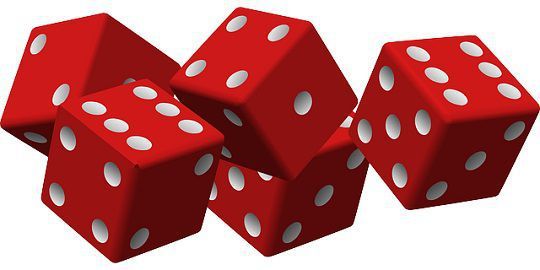
Difference Between Odds And Probability With Comparison Chart Key Differences
Odds and probability formula
Odds and probability formula-If the odds against an event occurring are 914, what is the probability of the event occurring? · Probability vs Chance The two terms probability and chance are closely related and thus many get confused with these words Chance is a word that is commonly used in everyday life situation, mostly in games of luck where chances of a
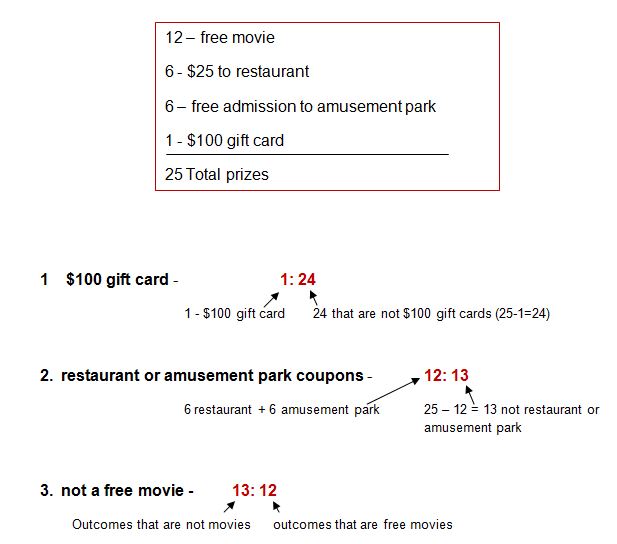


Odds And Probability
· Odds Odds seems less intuitive It is the ratio of the probability a thing will happen over the probability it won't In the spades example, the probability of drawing a spade is 025 The probability of not drawing a spade is 1 025 So the odds is 025/075 or 13 (or 033 or 1/3 pronounced 1 to 3 odds) Moving back and forth · The Difference Between "Probability" and "Odds" If a race horse runs 100 races and wins 25 times and loses the other 75 times, the probability of winning is 25/100 = 0 If the horse runs 100 races and wins 5 and loses the other 95 times, the probability of winning is 005 or 5%, and the If the · Odds ratios work the same An odds ratio of 108 will give you an 8% increase in the odds at any value of X Likewise, the difference in the probability (or the odds) depends on the value of X So if you do decide to report the increase in probability at different values of X, you'll have to do it at low, medium, and high values of X
· The Ask Dr Math forum has several entries on odds versus probability Summarizing, one way to conceptualize (nontechnically) the probability of an event is the number of ways that an event can occur divided by the total number of possible outcomes The probability of heads in a fair coin flip is 1/2 (50 percent) · Probability and odds are two basic statistic terms to describe the likeliness that an event will occur They are often used interchangeably in causal conversation or even in published material However, they are not mathematically equivalent because they are looking at likeliness in different contexts · Equal odds are 1 1 success for every 1 failure 11 Equal probabilities are 5 1 success for every 2 trials Odds can range from 0 to infinity Odds greater than 1 indicates success is more likely than failure Odds less than 1 indicates failure is more likely than success Probability can range from 0 to 1
· Difference Between Probability and Odds • Probability is expressed as a number between 0 and 1, while Odds is expressed as a ratio • Probability ensures that an event will occur, but Odds is used to find out whether the event will ever occurPositive odds (100 divided by (the percentage divided by 100)) minus 100 eg a probability of 10% = (100 / (10 / 100)) 100 = 900 Negative odds The probability divided by (1 minus (the probability divided by 100)) then multiply by 1 to convert into a negative eg a probability of 60% = (60 / (1 (60/100))) * 1 = 150 · Probability = 1/5 = 02;


Odds Vs Risk Vantage Research



Logistic Regression The Journey From Odds To Log Odds To Mle To Woe To Let S See Where It Ends By Rutvij Lingras Analytics Vidhya Medium
4 Zeilen · · The primary difference between odds and probability is that while odds is a ratio of · Remember, odds change as the bets come in, which means probability estimations vary with time Moreover, the odds displayed by different bookmakers can vary significantly, meaning that the odds · The difference between the payoff odds and the odds of the bet winning is where the house edge stems from In other words, the casino has shaved off a little bit of the probability so that it makes a slight profit on the odds
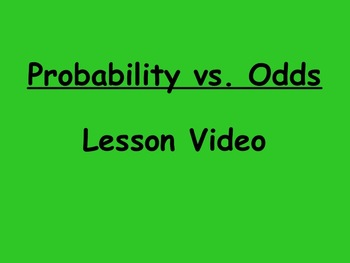


Probability Probability Vs Odds Lesson Video By J Thompson Tpt



Epi546 Block I Lecture 3 Frequency How Do
For example, the exact mathematical equivalent of decimal odds 30 is fractional odds 29/1 However 29/1 is not used in betting markets, instead 30/1 is used, so that is what appears in this converter For an explanation of the odds types on this table see decimal, fractional and American oddsCalculating Probability Given Odds To calculateEach outcome of an experiment or a collection of outcomes make an event If each outcome of an experiment has an equal chance of occurrence then these outcomes are equally likely As in the example of rolling a die the chances of occurrence of numbers among 1 to 6 are equally likely Probability Formula



Comparing Probability Odds For And Odds Against Youtube


Odds Vs Probability Casino Spies
· The odds quoted determine the probability of a particular outcome occurring in any sporting event Betting odds also allow punters (the person making the bet) to determine the expected return on their stake should the predicted outcome become a reality Here are some of the key terms to note before starting to bet · Odds can be expressed as a ratio of the probability an event will happen divided by the probability an event won't happen Odds in favor of A = A / (1 A), usually simplified to lowest terms, For instance, if the probability of an event occurring is 075, then the odds for it happening are 075/025 = 3/1 = 3 to 1 for, while the probability that it doesn't occur is 1 to 3 againstIf the probability of success is 5, ie, 5050 percent chance, then the odds of success is 1 to 1 The transformation from probability to odds is a monotonic transformation, meaning the odds increase as the probability increases or vice versa Probability ranges from 0 and 1 Odds range from 0 and positive infinity
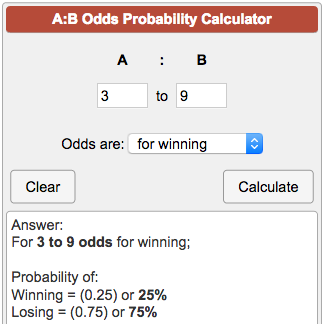


Odds Probability Calculator
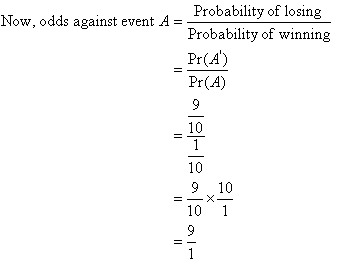


Odds
An odds ratio (OR) is a statistic that quantifies the strength of the association between two events, A and B The odds ratio is defined as the ratio of the odds of A in the presence of B and the odds of A in the absence of B, or equivalently (due to symmetry), the ratio of the odds of B in the presence of A and the odds of B in the absence of ATwo events are independent if and only if the OROut of 5 times, 1 time will be the event and 4 times will be the nonevent, odds = 025 Odds = 1/5 / 4/5 = 1/4 = 025; · Decimal odds are a simple reflection of the return you will receive for each single unit placed In other words, odds of 165 means that for every 100 you place on a particular outcome, you will receive a profit of 065 should that outcome prevail To convert these odds to their respective implied probabilities we make a simple calculation



Relation Between Probability And Odds At Different Values Of Probability Download Scientific Diagram
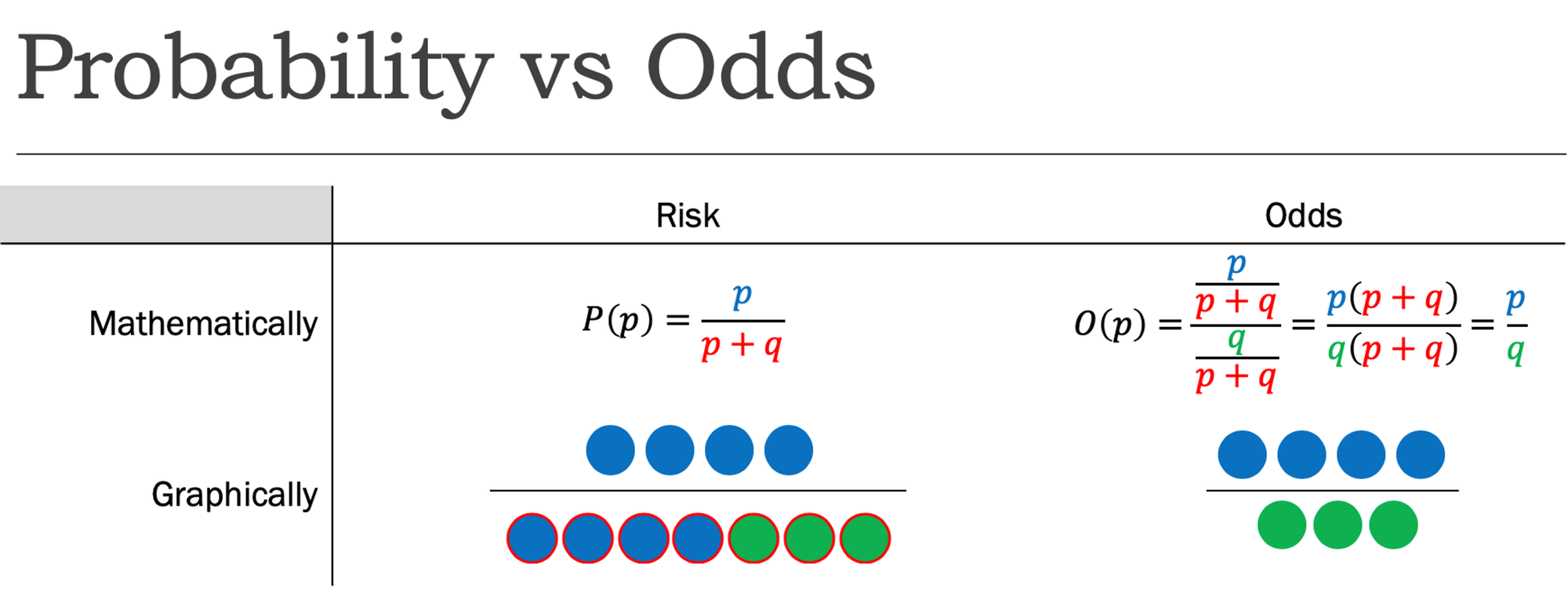


Cureus What S The Risk Differentiating Risk Ratios Odds Ratios And Hazard Ratios
· It's also helpful to think of how odds and probability differ in their properties Probability has a limited range from zero to one Odds has an infinite range The probability of something happening is always less than the odds of it happening (assuming the probability is The smaller theCalculating the odds without the number of subjects by the ratio of the number of events (1) by the number of nonevents (4) odds = 1/4 = 025;Many people wrongfully assume odds and probabilities are the same thingThey're definitely not, as there's a significant difference between saying there are
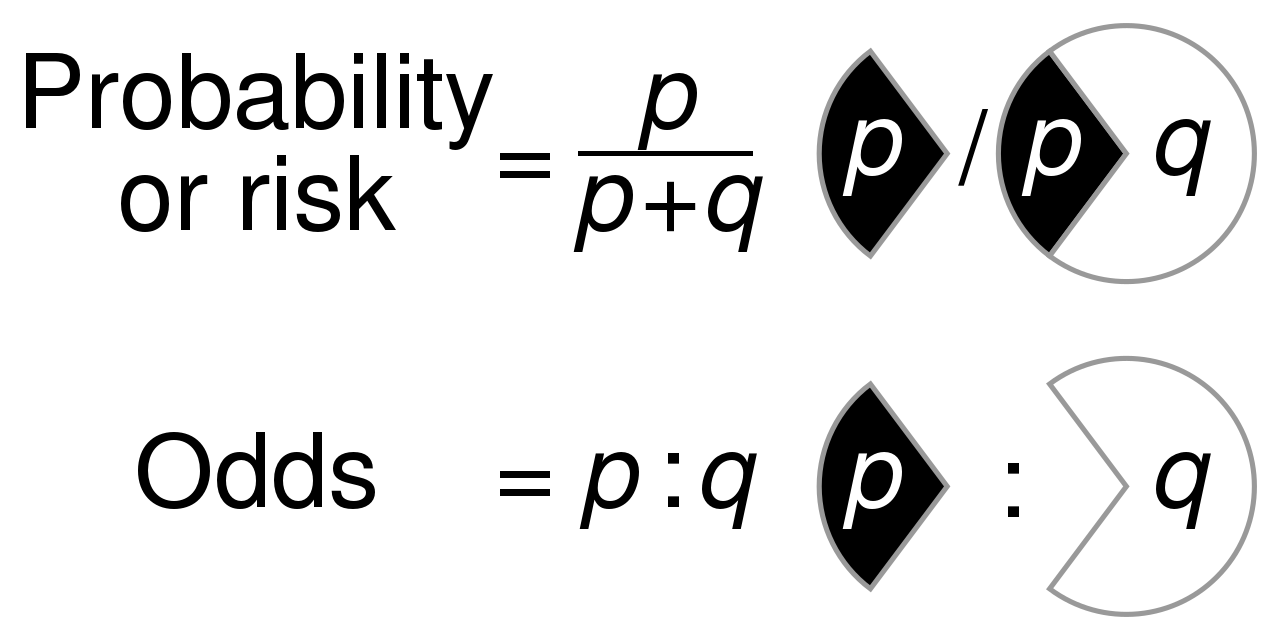


File Probability Vs Odds Svg Wikimedia Commons



Lecture3
Odds is a see also of probability As nouns the difference between odds and probability is that odds is the ratio of the probabilities of an event happening to that of it not happening while probability is the state of being probable;Probability is always between 0 and 1 Probability is Just a Guide Probability does not tell us exactly what will happen, it is just a guide Example toss a coin 100 times, how many Heads will come up? · Championship PlayOff Final 21 Time, TV Channel & Odds Saturday sees the Championship playoff final take place at Wembley between Brentford and Swansea Oddschecker bring you all the key info ahead of this bigmoney showdown 3 days ago



Gambling And Probability 1 Odds And Football Predict The Premier League Results For This Weekend Can You Estimate The Probability Of A Win Draw Loss Ppt Download
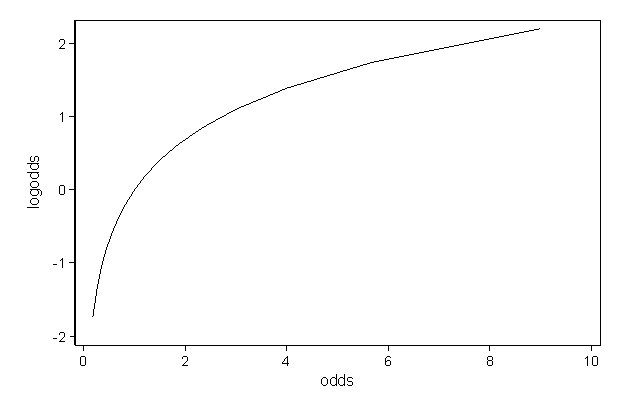


Faq How Do I Interpret Odds Ratios In Logistic Regression
· It is common for people to have a confusion between the concepts of odds and probability, and often times, they incorrectly use them, most typically interchanging probability by odds The odds for the occurrence of an event are simply the probability of occurrence of an event, divided by the probability that the event does not occur · Continuing with our example, let's take the NYG implied win probability of 318% (1 WSH win probability)and convert it into a money line (1y)/ y * 100 where · Difference Between Odds and Probability Odds vs Probability Probability is a mathematical assumption of chance that can be calculated using an equation The equation measures the chances for an event to occur against the total number of chances that occurrence may produce That is (Chances for)(Total Chances) Odds, on the other hand, are a measure of chance



Probability Vs Odds What S The Deal With State Lottery Odds Table
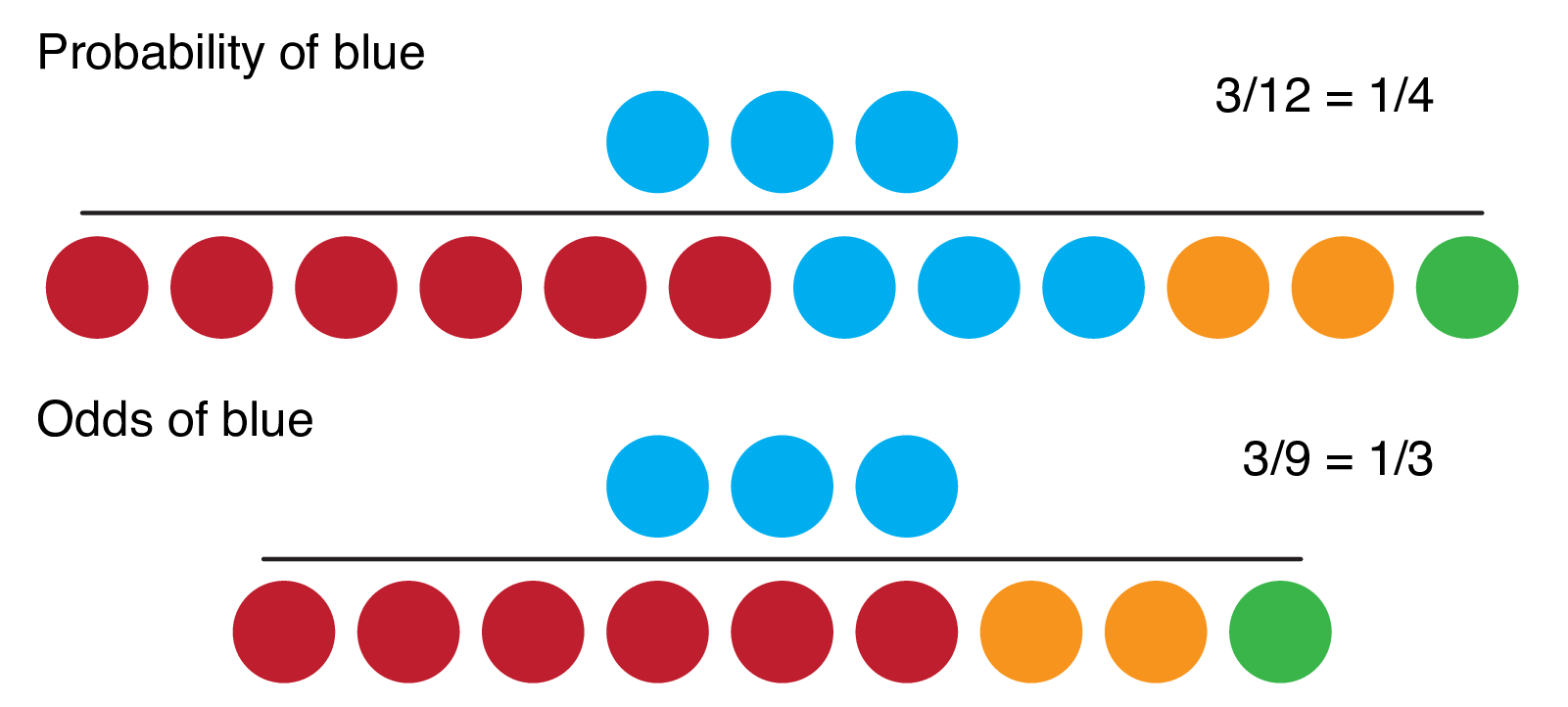


9 2 Binary Logistic Regression R For Health Data Science
The number of males and females enrolled in Blue Dolphin High School are listed · Odds as a ratio, odds as a number, and probability (also a number) are related by simple formulas, and similarly odds in favor and odds against, and probability of success and probability of failure have simple relationsThe odds for the occurrence of an event are simply the probability of occurrence of an event, divided by the probability that the event does not occur Or for example, if there are 8 equally likely individual outcomes, and 6 of them favor of an event, and 2 are against the event, then the odds for the occurrence of the event are "6 to 2", or "6


Chapter 4 Introduction To Probability Statistics At Eastside Prep


What Is The Probability Of Event E If The Odds In Favor Of E Is 10 21 Quora
Probability says that heads have a ½ chance, so we can expect 50 Heads But when we actually try it we might get 48 heads, or 55 heads · A probability of 0 is the same as odds of 0 Probabilities between 0 and 05 equal odds less than 10 A probability of 05 is the same as odds of 10 Think of it this way The probability of flipping a coin to heads is 50% The odds are "fifty fifty," which equals 10 As the probability goes up from 05 to 10, the odds increase from 1This time, the back odds and lay odds need to be high and close together, to maximise profits — again, OddsMatcher can help you find the right market to bet on Matched betting example Here is an example of how matched betting works, step by step



Probability Vs Odds What S The Difference Learn It And By Z Ai Towards Data Science
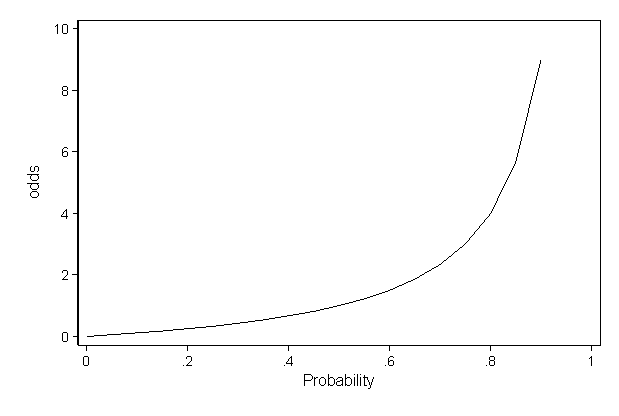


Faq How Do I Interpret Odds Ratios In Logistic Regression
· Without going into too much detail, probability is a number between 0 and 1 that tells you the fractional likelihood that something will happen So a probability of 0 means there's literally no chance of that thing happening, a probability of 05 means there's a 50% chance, and a probability of 1 means that it's certain to happen · What many people do not realize is that odds such as these are really just a restatement of the probability of an event Probability compares the number of successes to the total number of attempts made The odds in favor of an event compares the number of successes to the number of failuresThe odds in favor of an event is the ratio of the number of ways the outcome can occur to the number of ways the outcome cannot occur # of ways the event CAN occur # of ways the event CANNOT occur This is actually a lot easier than probability So, let's take a look at an example


Odds Vs Probability Vs Chance Data Science Central
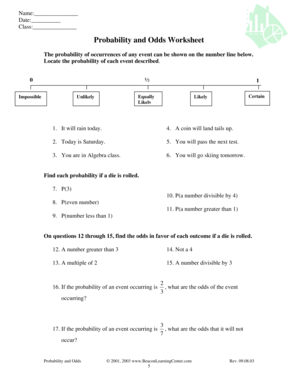


Probability And Odds Worksheet Fill Online Printable Fillable Blank Pdffiller
· Could you clarify with the above odds are they indiviidual or cumulative eg Odds of being dealt a pair are 5% or 116 then the odds of flopping trips are 118% or 175 So are the odds of hitting trips the single odds of 118%175 or is it the cumulative sum of A being dealt any pair 5% 116 multiplied by B flopping a set 118% or 17Odds are frequently used to represent chance and probability in both statistics and gambling The terms "odds on," "odds against," and "even odds" have been adopted colloquially by English speakers, with references to odds dating back to the 1500sWhat I want to do in this video is give you at least a basic overview of probability probability a word that you've probably heard a lot of and you are probably a little bit familiar with it but hopefully this will give you a little deeper understanding so let's say that I have let's say that I have a fair coin over here and so when I talk about a fair coin I mean that it has an equal chance



Webinar Recording Signup
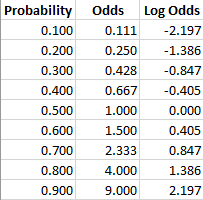


Log Odds Definition And Worked Statistics Problems
Odds, are given as (chances for success) (chances against success) or vice versa If odds are stated as an A to B chance of winning then the probability of winning is given as P W = A / (A B) while the probability of losing is given as P L = B / (A B) For example, you win a game if you pull an ace out of a full deck of 52 cards Pulling any other card you lose The chance of winning is 4Convert betting odds to probability Now we want to see what those odds mean in terms of probability There is another simple formula that takes the numbers in a fractional odds presentation, adds them together and then divides that total by the second number to give a probability factor So for Barcelona at 4/6 that is 46=10 and then 10 divided by 6 = 16 thenProbability vs Odds


Why Saying A One Unit Increase Doesn T Work In Logistic Regression Learn By Marketing



Statistics 12 Probability Vs Odds Stats Seandolinar Com


Relative Risk Ratios And Odds Ratios



Odds And Probability
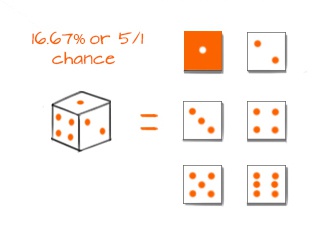


Betting Odds Explained Sport Betting Guide 8sport
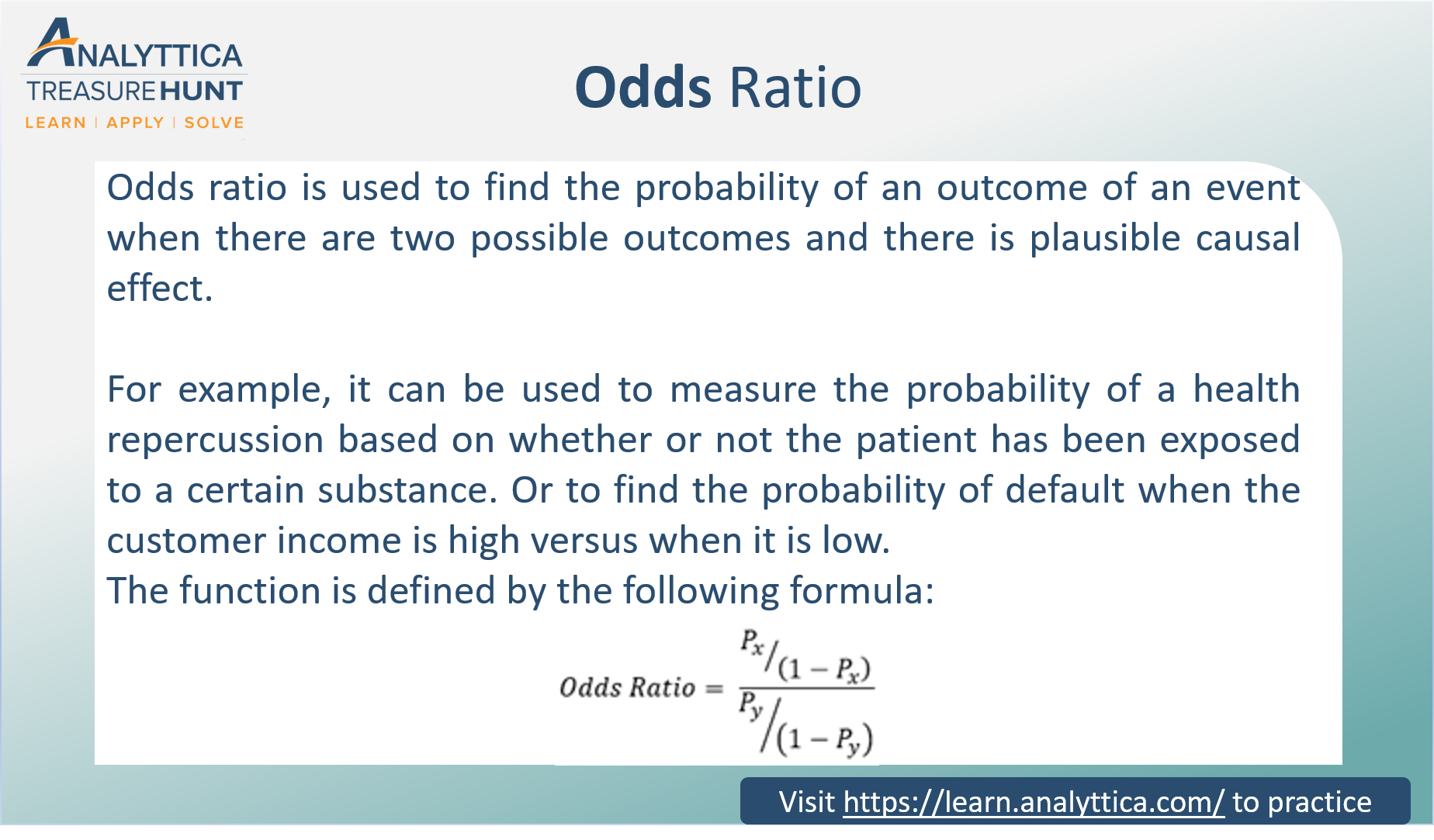


Odds Ratio The Odds Ratio Is Used To Find The By Analyttica Datalab Medium
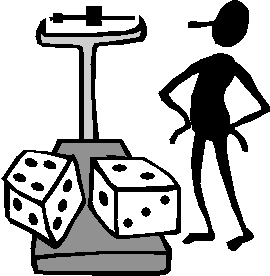


The Difference Between Probability And Odds
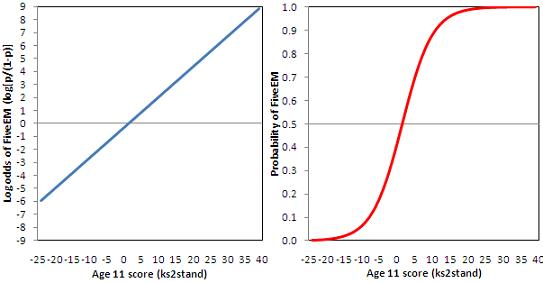


4 5 Interpreting Logistic Equations



Giant Battling Robots Probability Versus Odds



How To Calculate Odds 11 Steps With Pictures Wikihow
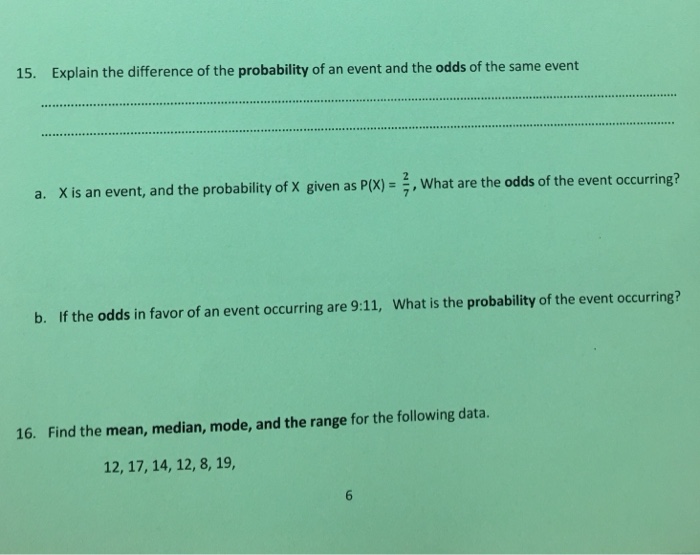


Solved 15 Explain The Difference Of The Probability Of A Chegg Com



Logistic Regression In Python Blog By Cory Maklin



Logistic Regression In Python Blog By Cory Maklin



The Difference Between Relative Risk And Odds Ratios The Analysis Factor
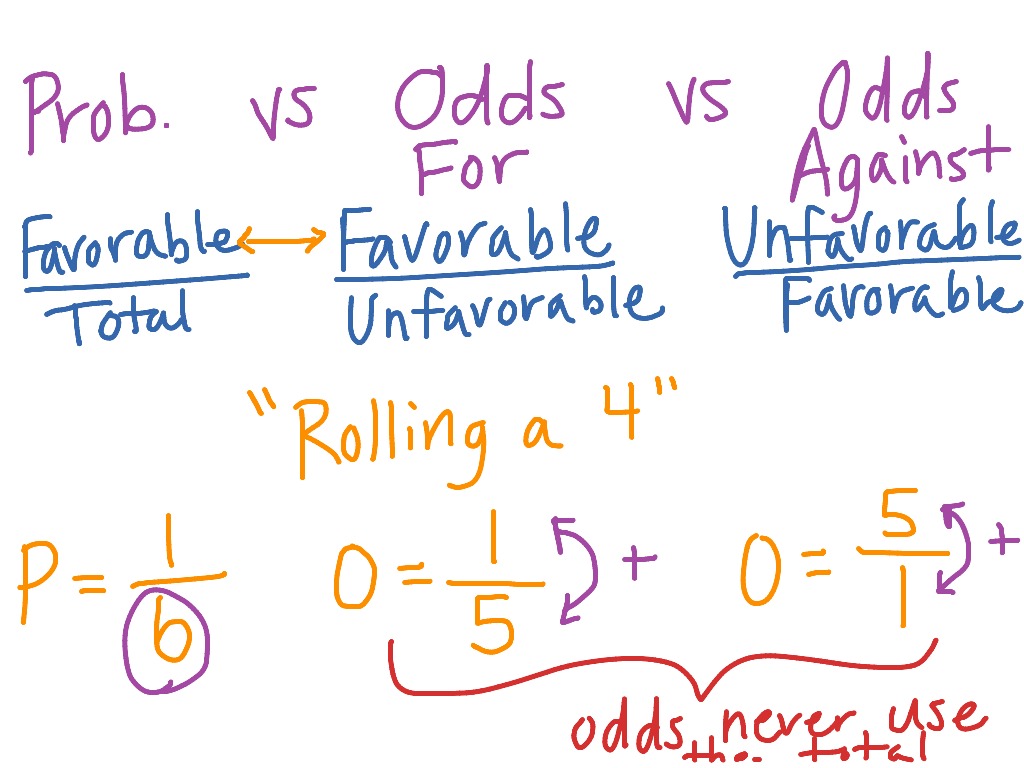


Odds Versus Probability Math Showme



Introduction To Probability Based Options Trading Put The Odds In Your Favor For Success Andres John Amazon Com Books


Probability Odds Lessons Blendspace



Odds Probability The Difference Explained With Examples



Implied Probability Betting Math Made Simple 21 Update



Are Odds And Probability The Same



Lecture 5 Basic Probability David R Merrell 90


Odds Vs Probability A Misunderstanding Elementsofai



Definition And Calculation Of Odds Ratio Relative Risk Stomp On Step1



True Odds Calculator Find Probabilities Fair Odds Margin



Probability Vs Odds Youtube
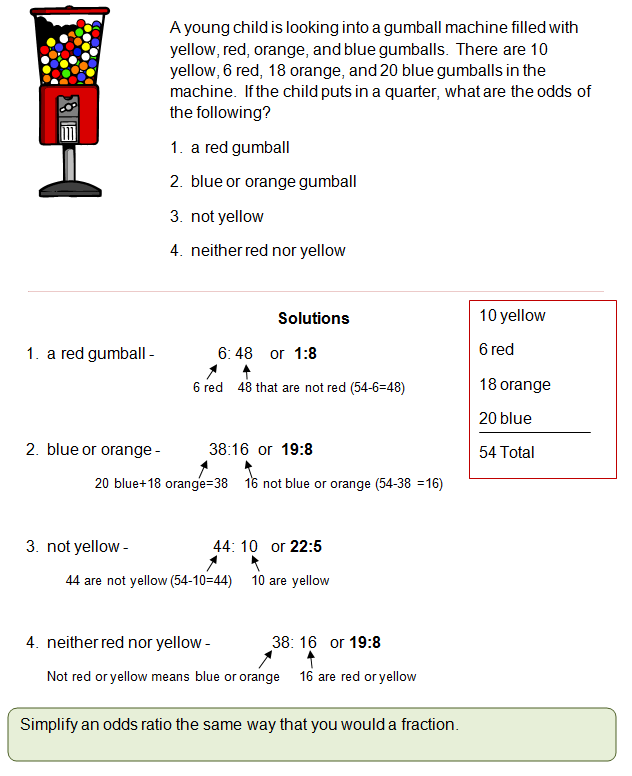


Odds And Probability
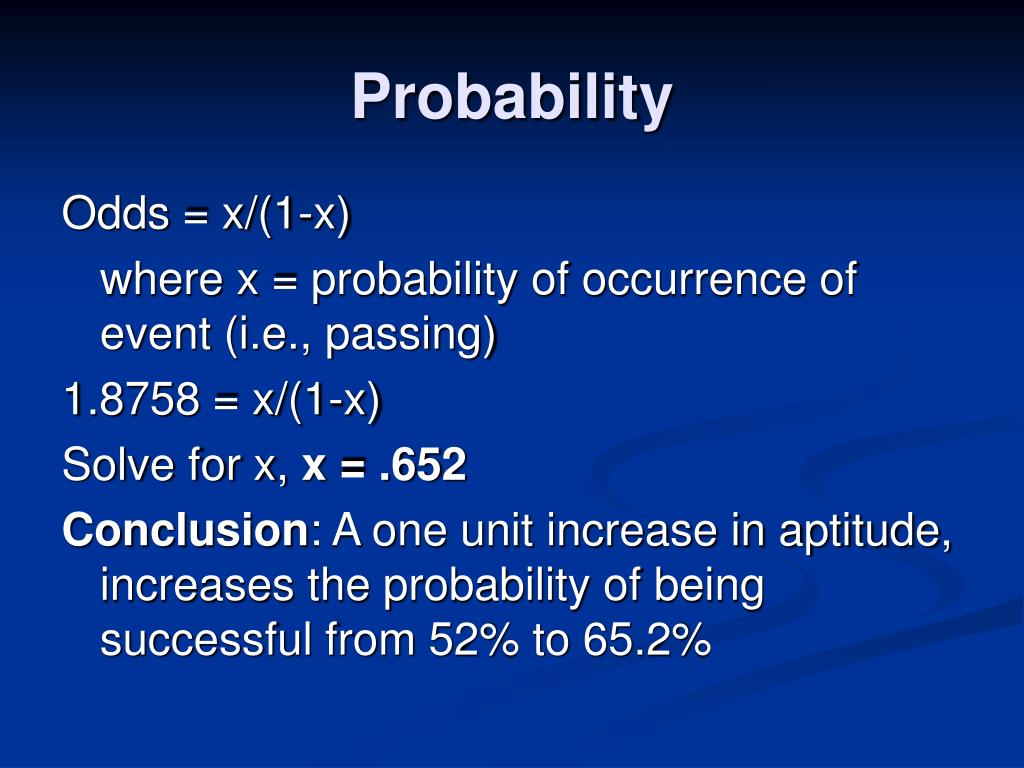


Ppt Odds Vs Probabilities Powerpoint Presentation Free Download Id


Odds Vs Probability Vs Chance Data Science Central



Logistic Regression 1 From Odds To Probability Dr Yury Zablotski
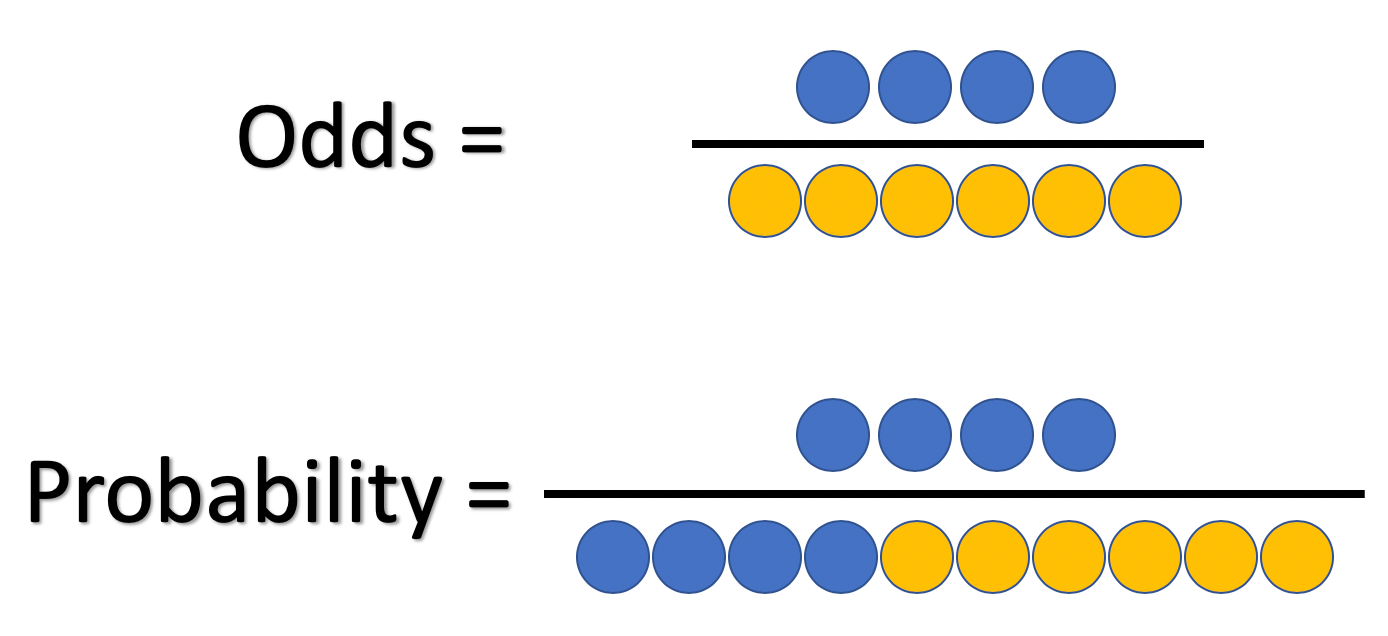


What And Why Of Log Odds What Are Log Odds And Why Are They By Piyush Agarwal Towards Data Science



Probability Odds Odds Ratio Youtube



Odds Ratios Versus Relative Risk
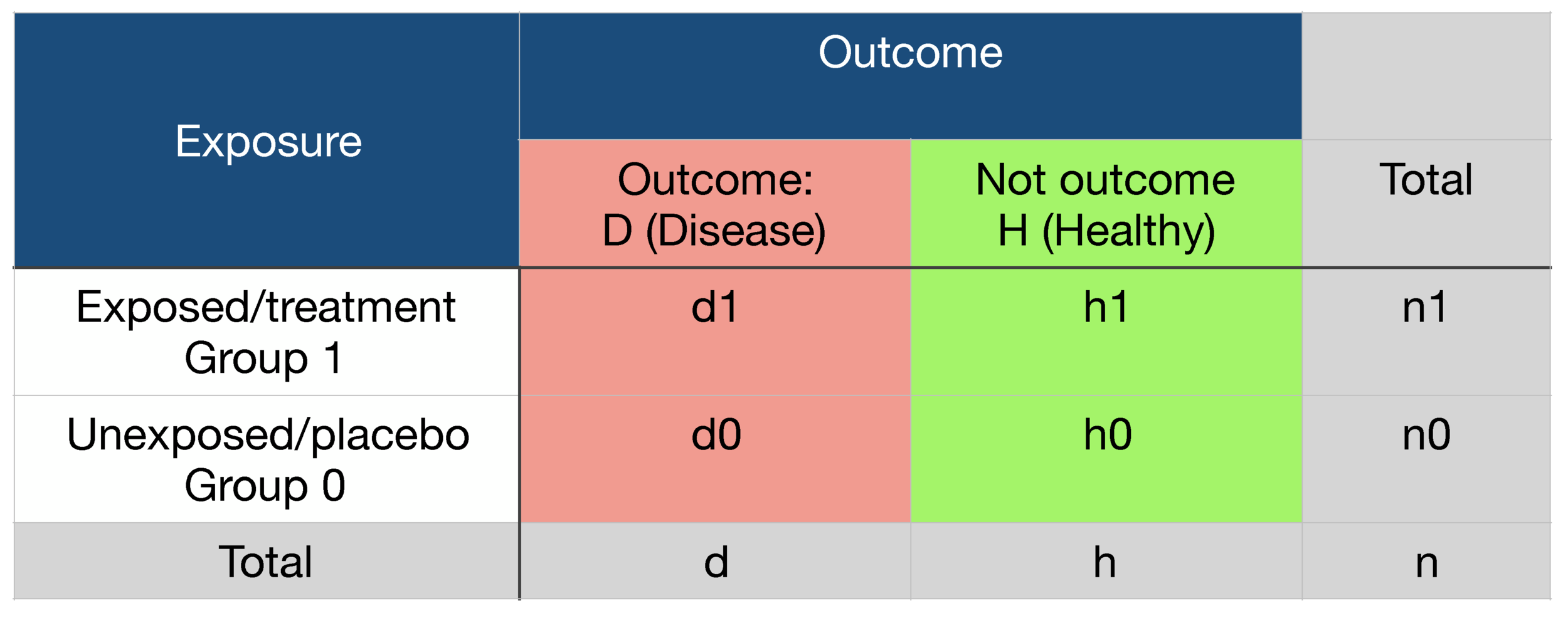


Probability Odds Ratio And Relative Risk Gp Raj
:max_bytes(150000):strip_icc()/dotdash_Final_The_Math_Behind_Betting_Odds_and_Gambling_Nov_2020-01-735accb453c8424b9e063c2c14e4edf4.jpg)


The Math Behind Betting Odds Gambling



Definition And Calculation Of Odds Ratio Relative Risk Stomp On Step1 Study Skills Research Methods Travel Humor Quotes



Probability Vs Odds What S The Difference Learn It And By Z Ai Towards Data Science



3 Ways To Calculate Lotto Odds Wikihow
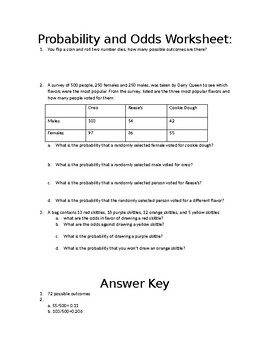


Probability And Odds Worksheets Teaching Resources Tpt


Ctspedia Ctspedia Oddsterm



7 Facts About Probability And Odds That You Don T Know



Math 30 2 Probability Odds Acceptable Standards 50 79 The Student Can Express Odds For Or Odds Against As A Probability Determine The Probability Ppt Download
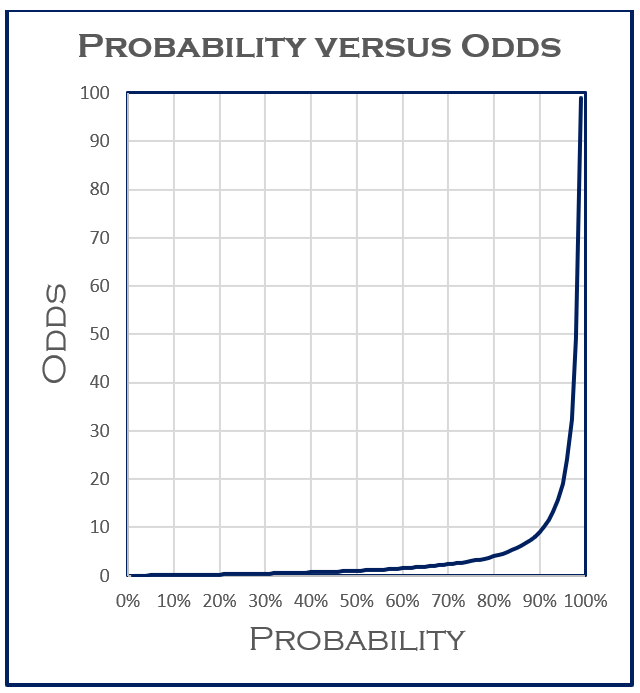


What Are The Odds Stats With Cats Blog



What S The Difference Between Probability And Odds



Betting Fundamentals Understanding Probability Punting Stars



Probability Vs Odds What S The Difference Learn It And By Z Ai Towards Data Science
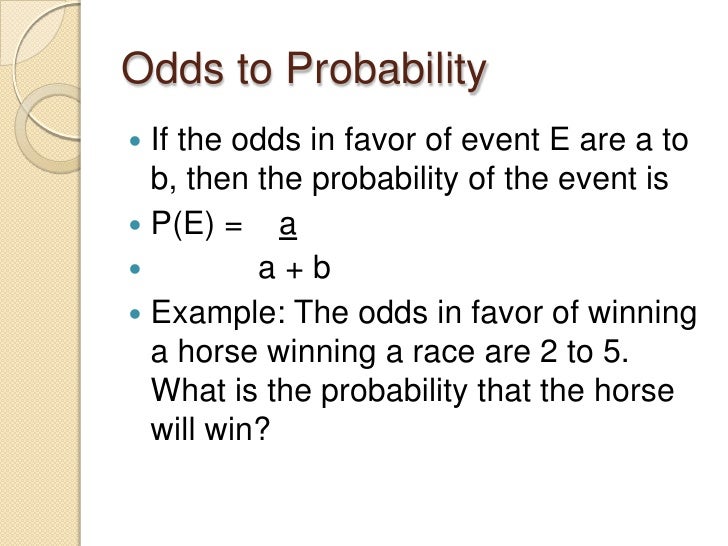


11 6 Probability Involving Or And Not
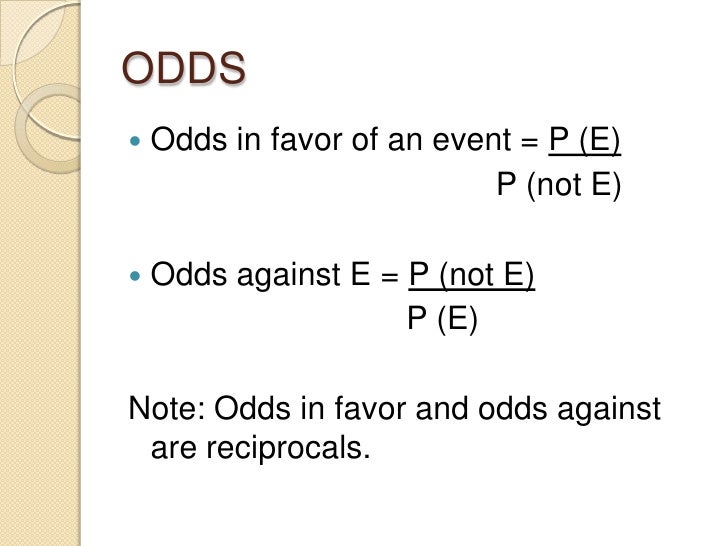


11 6 Probability Involving Or And Not
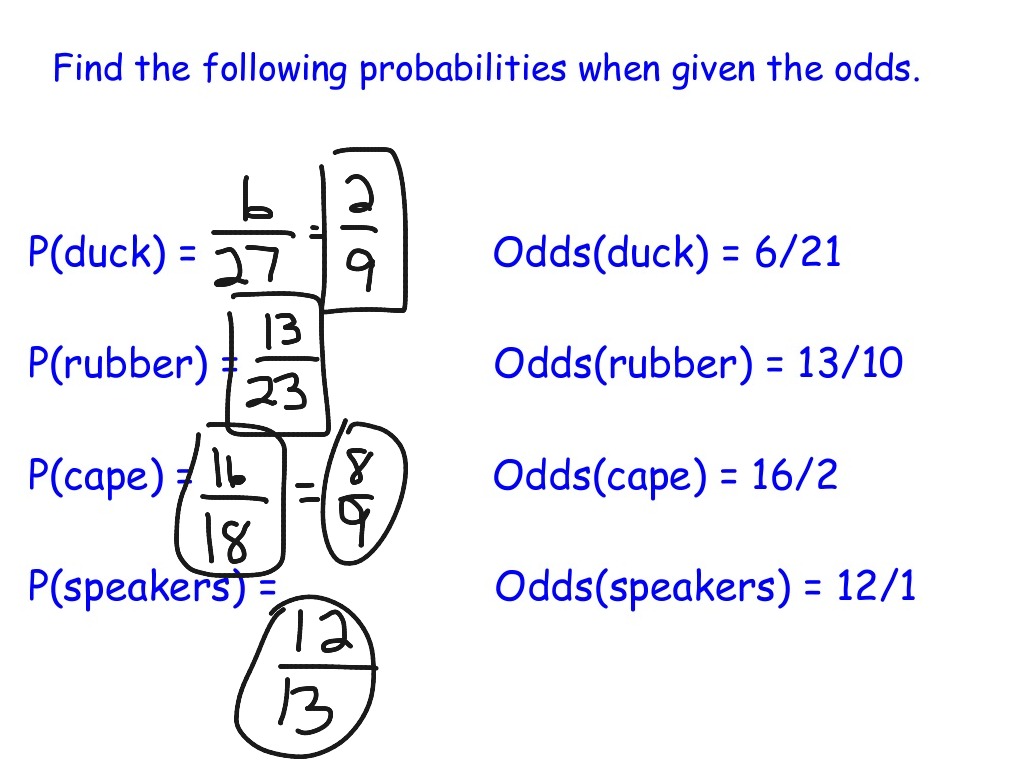


Probability Probability Vs Odds Lesson Math Statistics Showme
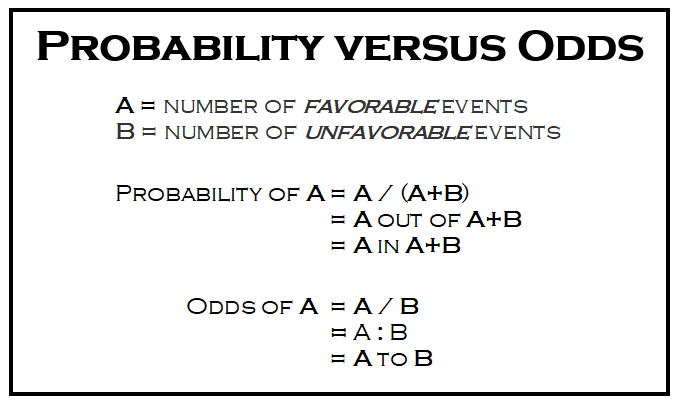


What Are The Odds Stats With Cats Blog


2 Odds Ghci Grade 12 Mathematics Of Data Management



Counting And Probability Lesson 5 Probability And Odds



Binary Logistic Regression With Odds Ratios Calculated For The Download Table



What Is The Difference Between Odds And Probability Statistics Youtube



Odds Introduction Arbital



Odds Probability And The Lottery Lotterycodex



Calculating Probability And Odds How To Find The Odds Of Casino Games



Simple Probability Definition Probability The Chance Some Event



Probability And Odds Quiz Topics Spin A Spinner Probability Draw From A Bag Of Balls Odds Counting Principle Indep Math Probability 10th Grade Math


Odds Likelihood Ratios Guide To Diagnostic Tests


Why Do High Odds Mean A Low Chance Quora
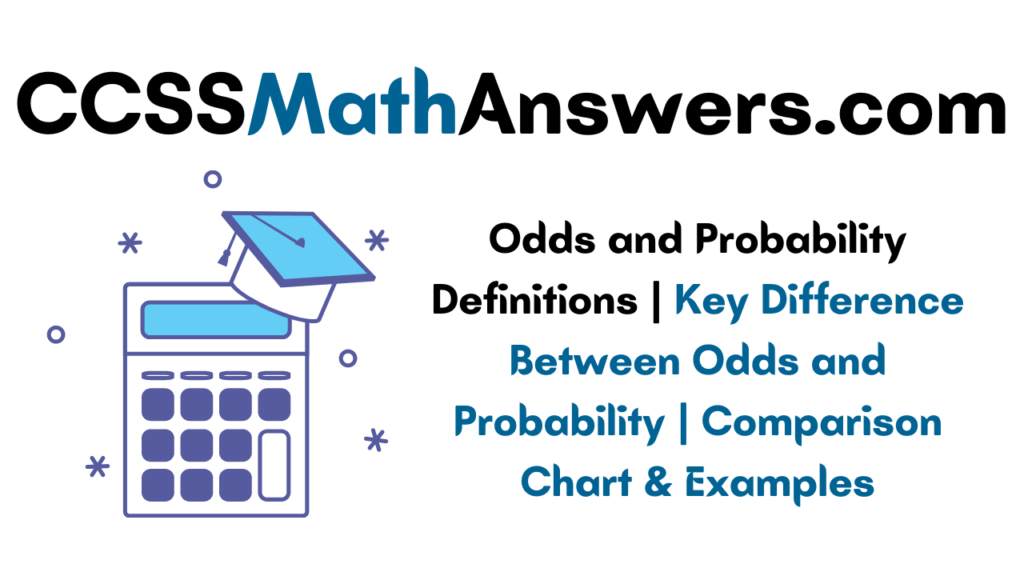


What S The Difference Between Odds And Probability



What And Why Of Log Odds What Are Log Odds And Why Are They By Piyush Agarwal Towards Data Science


2 Odds Ghci Grade 12 Mathematics Of Data Management



Estimated Z Score Odds Ratio And The Corresponding Probability For The Download Table



Probability And Odds Youtube



Is There A Difference Between Odds And Probability



Probability Vs Odds In Favour Or Against An Event Examples Youtube



Learn Odds In Favour And Odds Against In 3 Minutes



Binary Logistic Regression With Odds Ratios Calculated For The Download Table



Converting Between Probability And Odds Mathwoes Youtube
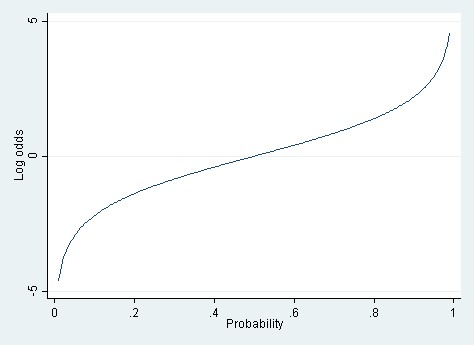


Linear Vs Logistic Probability Models Which Is Better And When Statistical Horizons



If 5 14 Is The Probability Of Occurrence Of An Event Find I T



Difference Between Odds And Probability With Comparison Chart Key Differences



Calculating Probability Of Dealer Busting S17 In Blackjack Stack Overflow
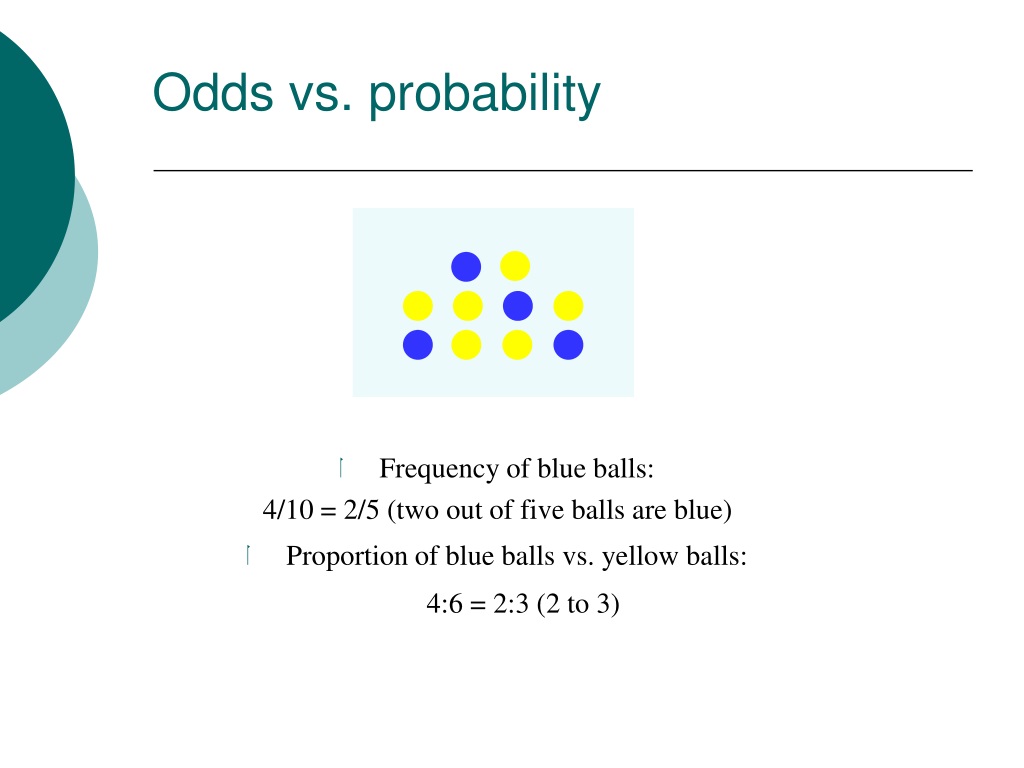


Ppt Odds Ratio Vs Relative Risk Powerpoint Presentation Free Download Id



What Is An Odds Ratio And How Do I Interpret It Critical Appraisal



0 件のコメント:
コメントを投稿